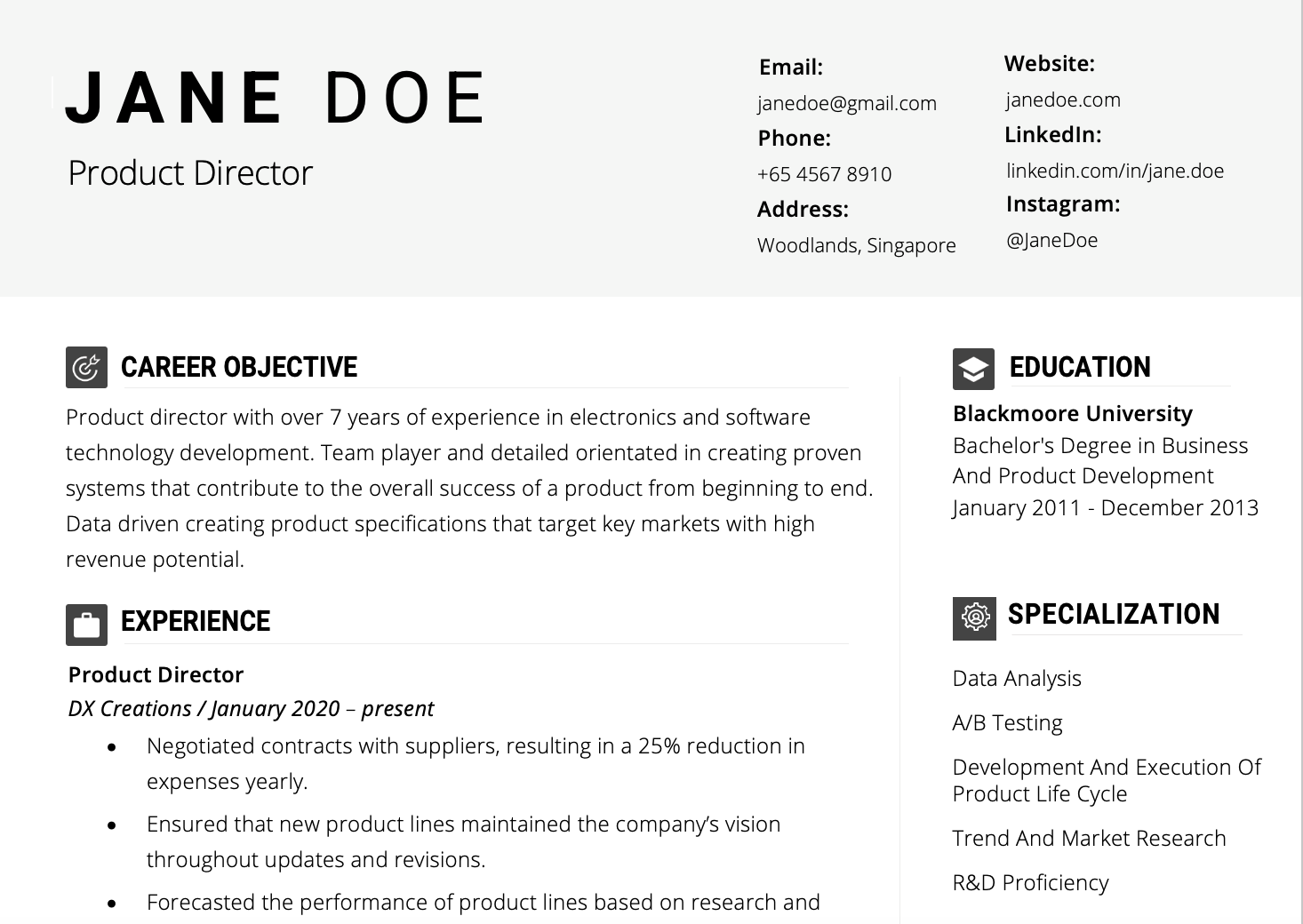
Strategising and creating the right roadmap for a product or product line is what product directors do best. But what about writing attention grabbing resumes? GRIT’s got you covered with this product director resume guide. Simple to follow tips and tricks to help you stand out and land that first round interview with your dream company.

If you want your resume to be well-received by the hiring managers, keep all of the information on one page. You can get away with a two-page resume if your career extends more than a decade. Remember that resumes should be focused and concise. This is the flow of a resume you should follow:
As for formatting, these are the basics you need to know:
An overview of your professional background, qualifications and drive behind growing your career in this specific industry. Provide a glimpse into why you love what you do, or why you want to grow and develop skills further.
Example: Product director with over 7 years of experience in electronics and software technology development. Team player and detailed orientated in creating proven systems that contribute to the overall success of a product from beginning to end. Data driven creating product specifications that target key markets with high revenue potential.
When drafting your work experience portion of your resume, keep two things in mind: bullet points and specific experience.
#1 Bullet Points
#2 Specific Experience
1) The Job Description: Technical and have built platforms and foundational products at scale to serve diverse customers, and have owned product life cycle from conception to launch to market fit.
2) Your Experience: Spearheaded a team of 20 with the construction of platforms and foundational products at scale to serve target customers from conception to launch, including market fit.
Even without any work experiences you can still craft a great resume as someone starting their career journey, after all everyone has to start from somewhere. Here’s what you can include instead of full-time work experiences.
Action words in resumes are adjectives that are used to describe achievements and experiences. It's a terrific method to get the attention of the hiring manager and highlight your accomplishments. Words like these are great action words to consider when writing your resume:
Since a resume is short and to the point, here's what to include and what to leave out.
In a separate piece of paper you’ll want to include the following to boost your chances at being selected for an interview. If you have a website with the following showcased, feel free to include your site under the contact information section of your resume.
If you’ve been meaning to up your value as a web developer, there are a handful of certificates you should look into regardless if you’re starting out or a veteran looking to sharpen your skills. Many are offered solely online with great time flexibility to work with your schedule and learning pace.
Awards are a great reminder of the achievements you’ve accomplished for your company or with your industry.
A cover letter is a terrific complement to any resume because it allows you to go into greater detail about why you're the best fit for the job. Instead of sending out generic resumes to each potential employer with an open position, a cover letter demonstrates your want to work for the company you're applying to. The structure of your cover letter matters as much as the content itself.
Make sure the font size and spacing are as easily readable as they are appealing to the eye. When describing your successes and experiences, utilise action words to emphasise your relevant talents to the position you're wanting to be recruited for.
Need a few more details? Check out our in depth guides on writing a resume, CV and cover letter. All guides are suitable for any profession with tips for careers across the board.